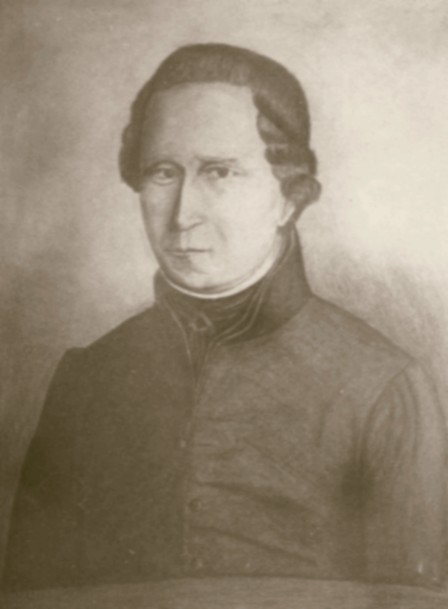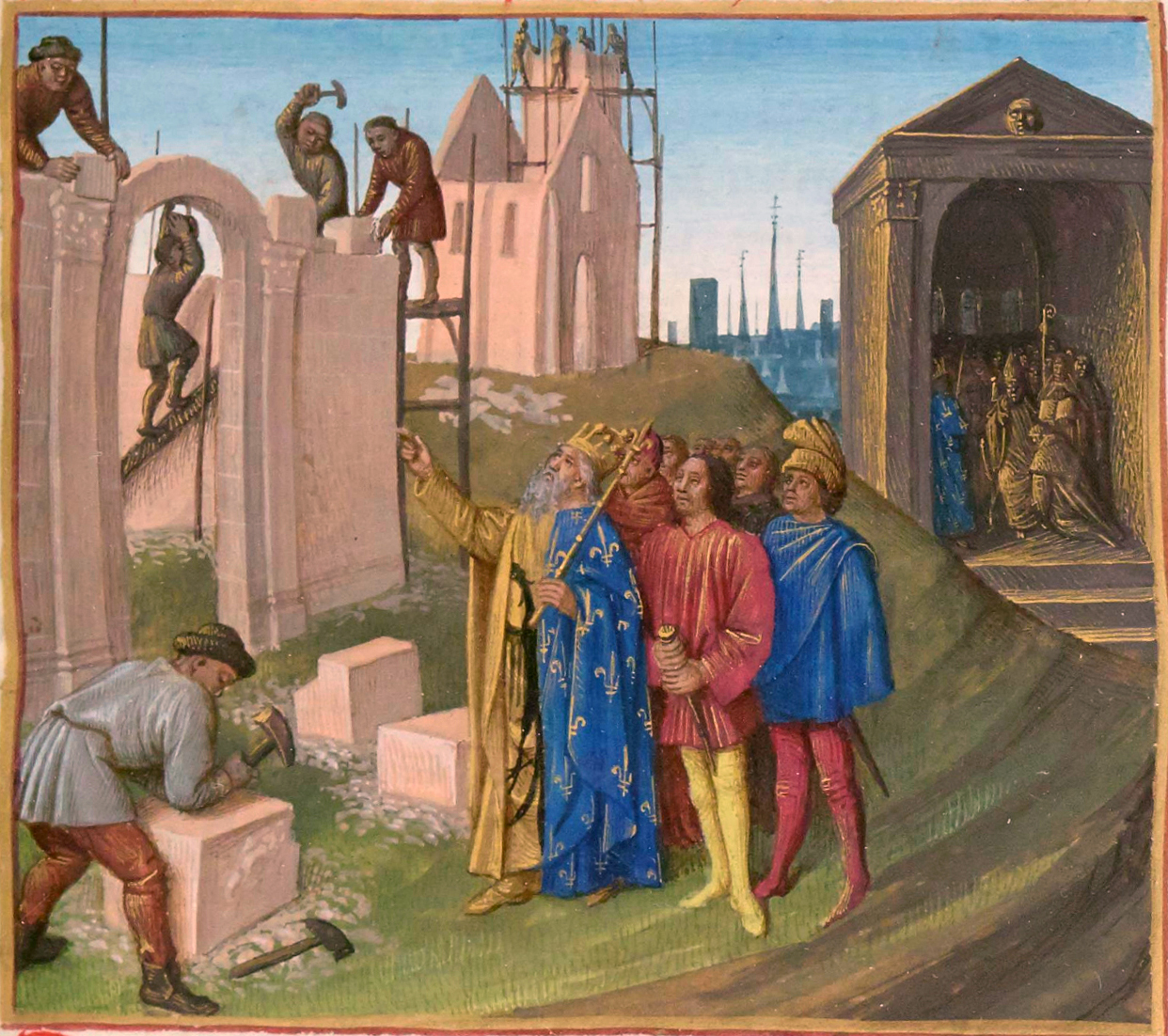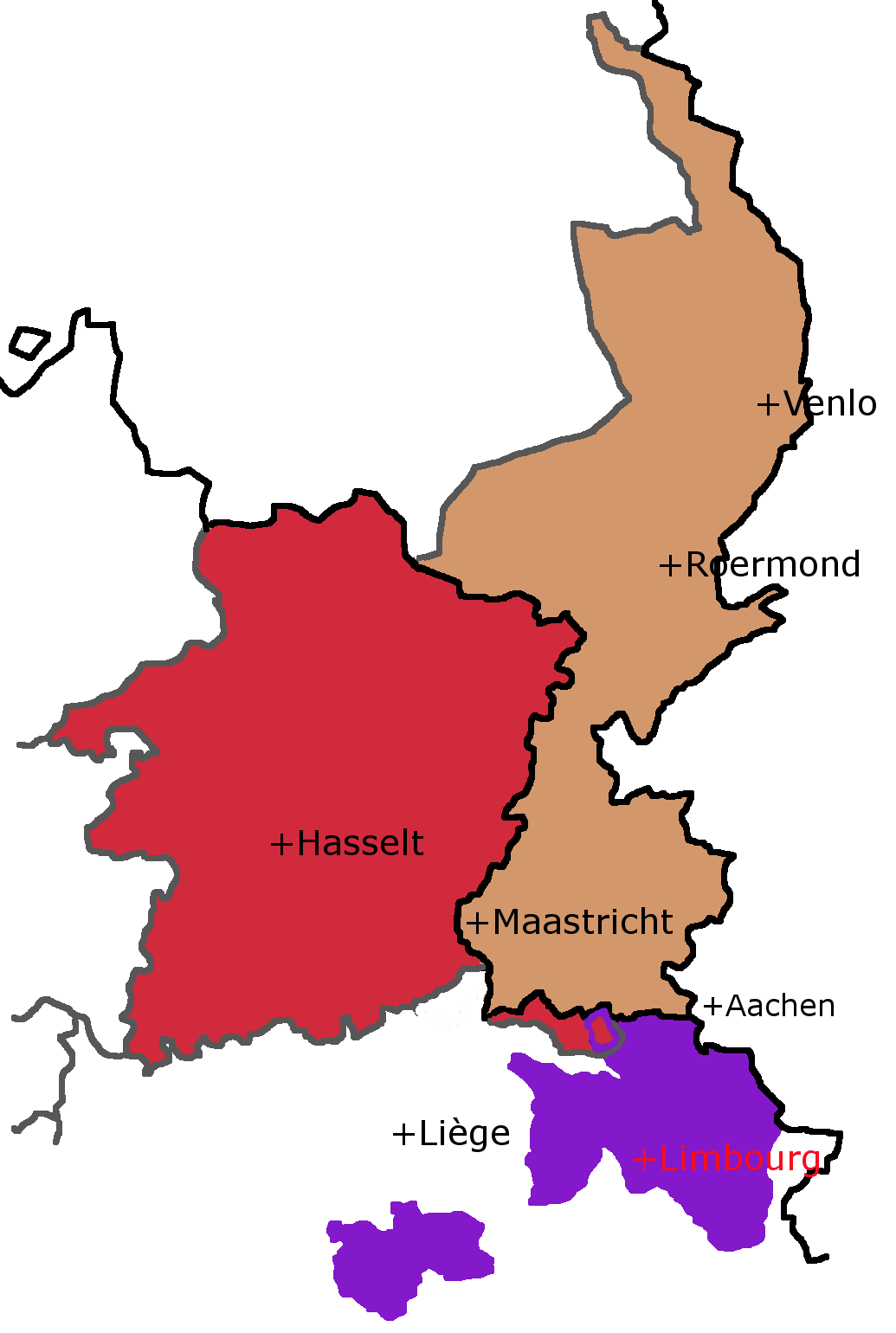|
Christian Quix
Christian Quix (8 October 1773, Hoensbroek – 13 January 1844, Aachen) was a Roman Catholic priest, heimatforscher (local historian) and from 1833 the director of the Stadtbibliothek Aachen, the city library of Aachen. Life The son of a typical tenant farming family from the Dutch province of Limburg, after his abitur he pursued a theological career. He entered the Carmelite order in 1792 and was ordained priest in 1795. However, the abolition of the monasteries in the French department of Roer The Roer (, ) or Rur (; ) is a major river that flows through portions of Belgium, Germany and the Netherlands. It is a right (eastern) tributary to the Meuse (). About 90 percent of the river's course is in Germany. It is not to be conf ... cut his employment prospects and he left the order to work as a private tutor. From 1806 until early retirement due to deafness in 1823 he was appointed to what is now the Kaiser-Karls-Gymnasium in Aachen, teaching ancient languages, histo ... [...More Info...] [...Related Items...] OR: [Wikipedia] [Google] [Baidu] |
Hoensbroek
Hoensbroek () is a Dutch town in the municipality of Heerlen. It is situated in the southeast of Limburg (Netherlands), Limburg, a province in the southeast of the Netherlands. Until 1982, Hoensbroek was a separate municipality. Hoensbroek is known for its medieval castle, Hoensbroek Castle, Kasteel Hoensbroek, named after Knight Hoen, a member of the Hoen Family. It dates from around 1250. Hoensbroek is also known for the fair on Ascension of Jesus, Ascension Day (Ascension of Jesus, Hemelvaartsdag). The fair brings as many as 100,000 people to the town, every year. In medieval times, the town was known under the name of Gebrook, meaning as much as "Swampy Landscape", and belonged to the Family Hoen. Their family name eventually mingled with the original one, resulting in the name ''Hoensbroeck'' for the location and Van Hoensbroeck as the family name. The spoken dialect, Gerbrooker Plat, refers to the ancient name of Gebrook. Recent history Coal mining The town remained modest ... [...More Info...] [...Related Items...] OR: [Wikipedia] [Google] [Baidu] |
Aachen
Aachen is the List of cities in North Rhine-Westphalia by population, 13th-largest city in North Rhine-Westphalia and the List of cities in Germany by population, 27th-largest city of Germany, with around 261,000 inhabitants. Aachen is located at the northern foothills of the High Fens and the Eifel Mountains. It sits on the Wurm (Rur), Wurm River, a tributary of the Rur (river), Rur, and together with Mönchengladbach, it is the only larger German city in the drainage basin of the Meuse. It is the westernmost larger city in Germany, lying approximately west of Cologne and Bonn, directly bordering Belgium in the southwest, and the Netherlands in the northwest. The city lies in the Meuse–Rhine Euroregion and is the seat of the Aachen (district), district of Aachen ''(Städteregion Aachen)''. The once Celts, Celtic settlement was equipped with several in the course of colonization by Roman people, Roman pioneers settling at the warm Aachen thermal springs around the 1st cen ... [...More Info...] [...Related Items...] OR: [Wikipedia] [Google] [Baidu] |
Historian
A historian is a person who studies and writes about the past and is regarded as an authority on it. Historians are concerned with the continuous, methodical narrative and research of past events as relating to the human species; as well as the study of all history in time. Some historians are recognized by publications or training and experience.Herman, A. M. (1998). Occupational outlook handbook: 1998–99 edition. Indianapolis: JIST Works. Page 525. "Historian" became a professional occupation in the late nineteenth century as research universities were emerging in Germany and elsewhere. Objectivity Among historians Ancient historians In the 19th century, scholars used to study ancient Greek and Roman historians to see how generally reliable they were. In recent decades, however, scholars have focused more on the constructions, genres, and meanings that ancient historians sought to convey to their audiences. History is always written with contemporary concerns and ancient hist ... [...More Info...] [...Related Items...] OR: [Wikipedia] [Google] [Baidu] |
Limburg (Netherlands)
Limburg (; ), also known as Dutch Limburg, is the southernmost of the twelve provinces of the Netherlands. It is bordered by Gelderland to the north and by North Brabant to the west. Its long eastern boundary forms the border with the German state of North Rhine-Westphalia. To the west is the border with the Belgian province of Limburg, part of which is delineated by the river Meuse. To the south, Limburg is bordered by the Belgian province of Liège. The Vaalserberg is the extreme southeastern point, the tripoint of the Netherlands, Germany, and Belgium. Limburg had a population of about 1,128,000 in January 2023. Its main municipalities are the provincial capital Maastricht (population 120,837 as of January 2022), Venlo (population 102,176) in the northeast, as well as Sittard-Geleen (population 91,760, bordering both Belgium and Germany) and Heerlen (population 86,874) in the south. More than half of the population, approximately 650,000 people, live in the south of Limb ... [...More Info...] [...Related Items...] OR: [Wikipedia] [Google] [Baidu] |
Abitur
''Abitur'' (), often shortened colloquially to ''Abi'', is a qualification granted at the end of secondary education in Germany. It is conferred on students who pass their final exams at the end of ISCED 3, usually after twelve or thirteen years of schooling (see also, for Germany, ''Abitur'' after twelve years). In German, the term has roots in the older word meaning "Leave (Graduation) exam/diploma", which in turn was derived from the Latin (future active participle of , thus "someone who is going to leave"). As a matriculation examination, ''Abitur'' can be compared to A levels, the '' Matura'' or the International Baccalaureate Diploma, which are all ranked as level 4 in the European Qualifications Framework. In Germany Overview The ("certificate of general qualification for university entrance"), often referred to as ("''Abitur'' certificate"), issued after candidates have passed their final exams and have had appropriate grades in both the last and second last s ... [...More Info...] [...Related Items...] OR: [Wikipedia] [Google] [Baidu] |
Carmelite
The Order of the Brothers of the Blessed Virgin Mary of Mount Carmel (; abbreviated OCarm), known as the Carmelites or sometimes by synecdoche known simply as Carmel, is a mendicant order in the Catholic Church for both men and women. Historical records about its origin remain uncertain; it was probably founded in the 12th century on Mount Carmel in the Holy Land. Names The Order of the Brothers of the Blessed Virgin Mary of Mount Carmel are also known simply as the Carmelites or the Carmelite Order. To differentiate themselves from the Discalced Carmelites (founded in 1562), who grew out of the older order but today have more members, the original Carmelites are sometimes known as the Carmelites of the Ancient Observance and very rarely the Calced Carmelites ( discalced being a reference to some religious orders going barefoot or wearing sandals instead of shoes). History Historical records about its origin remain uncertain, but the order was probably founded in the 12th ... [...More Info...] [...Related Items...] OR: [Wikipedia] [Google] [Baidu] |
Roer (department)
Roer () was a Departments of France, department of the French First Republic and later First French Empire in present-day Germany and the Netherlands. It was named after the river Roer (Rur), which flows through the department. It was formed in 1797, when the left bank of the Rhine was occupied by the French. The department was formed from the duchies of duchy of Jülich, Jülich and duchy of Cleves, Cleves, the part of the Electorate of Cologne, Archbishopric of Cologne left of the Rhine, the Free City of Aachen, the Prussian Guelders, Prussian part of the duchy of Guelders and some smaller territories. In 1805 the city of Wesel was added to the department. The capital was Aachen, Aix-la-Chapelle (''Aachen''). The department was subdivided in the following arrondissements and canton (administrative division), cantons (situation in 1812): [...More Info...] [...Related Items...] OR: [Wikipedia] [Google] [Baidu] |
19th-century Dutch Roman Catholic Priests
The 19th century began on 1 January 1801 (represented by the Roman numerals MDCCCI), and ended on 31 December 1900 (MCM). It was the 9th century of the 2nd millennium. It was characterized by vast social upheaval. Slavery was abolished in much of Europe and the Americas. The First Industrial Revolution, though it began in the late 18th century, expanded beyond its British homeland for the first time during the 19th century, particularly remaking the economies and societies of the Low Countries, France, the Rhineland, Northern Italy, and the Northeastern United States. A few decades later, the Second Industrial Revolution led to ever more massive urbanization and much higher levels of productivity, profit, and prosperity, a pattern that continued into the 20th century. The Catholic Church, in response to the growing influence and power of modernism, secularism and materialism, formed the First Vatican Council in the late 19th century to deal with such problems and confirm cer ... [...More Info...] [...Related Items...] OR: [Wikipedia] [Google] [Baidu] |
Dutch Librarians
Dutch or Nederlands commonly refers to: * Something of, from, or related to the Netherlands ** Dutch people as an ethnic group () ** Dutch nationality law, history and regulations of Dutch citizenship () ** Dutch language () * In specific terms, it reflects the Kingdom of the Netherlands ** Dutch Caribbean ** Netherlands Antilles Dutch may also refer to: Places * Dutch, West Virginia, a community in the United States * Pennsylvania Dutch Country People Ethnic groups * Pennsylvania Dutch, a group of early German immigrants to Pennsylvania Specific people * Dutch (nickname), a list of people * Johnny Dutch (born 1989), American hurdler and field athlete * Dutch Schultz (1902–1935), American mobster born Arthur Simon Flegenheimer * Dutch Mantel, ring name of American retired professional wrestler Wayne Maurice Keown (born 1949) * Dutch Savage, ring name of professional wrestler and promoter Frank Stewart (1935–2013) Arts, entertainment, and media Fictional characters ... [...More Info...] [...Related Items...] OR: [Wikipedia] [Google] [Baidu] |






